Charities in a time of covid19
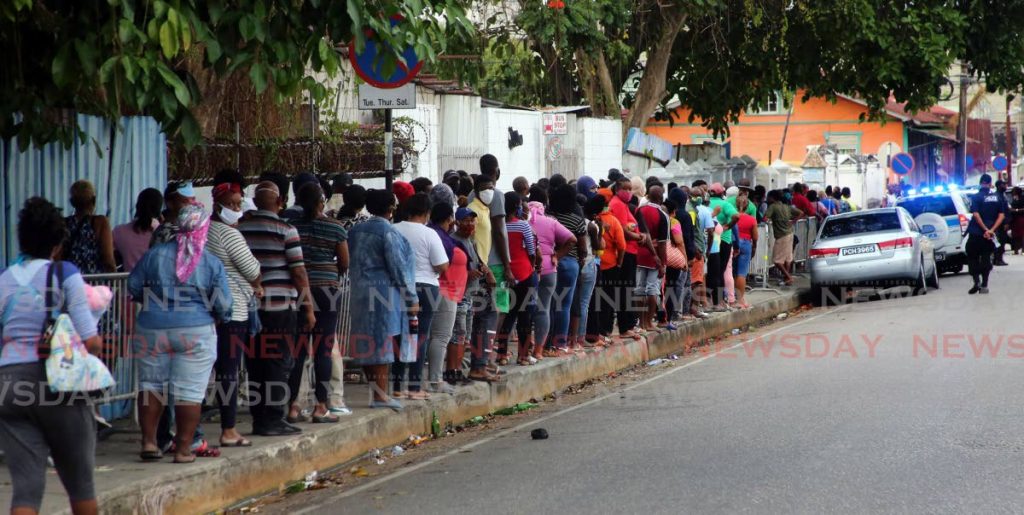
KIERAN ANDREW KHAN
Long lines escaped the confines of Barakkah Grounds in Chaguanas and another wove its way through the streets of Port of Spain just last month – bringing light to the immediate economic disaster that resulted from covid19 business closures. While this pandemic has upended most of the current way of life, there is one type of organisation in which the impact is even greater than most – charities. While companies adapted to working from home, shorter working hours travel restrictions and supply chain disruptions, the plethora of charitable organisations in TT would have had to face these same challenges while seeing a surge in demand for their relief efforts too.
The Foundation for the Enhancement and Enrichment of Life (FEEL), established in 1992 as an umbrella civil society organisation (CSO), has been at the forefront of depressed economic areas in TT – providing foodstuff, clothing, medical and disaster relief efforts too. So far, the organisation has donated over $1 million in food supplies and toiletries. Unlike natural disasters that would match the scale of the demand seen with covid19, the organisation has not been able to raise funds as quickly as they could – due to limitations in personal mobility which limited people dropping off goods or making donations. In an emailed response to Business Day, the organisation said they had already adapted to using online platforms for fundraising but also noted that this level of demand was unsustainable at their current rates.
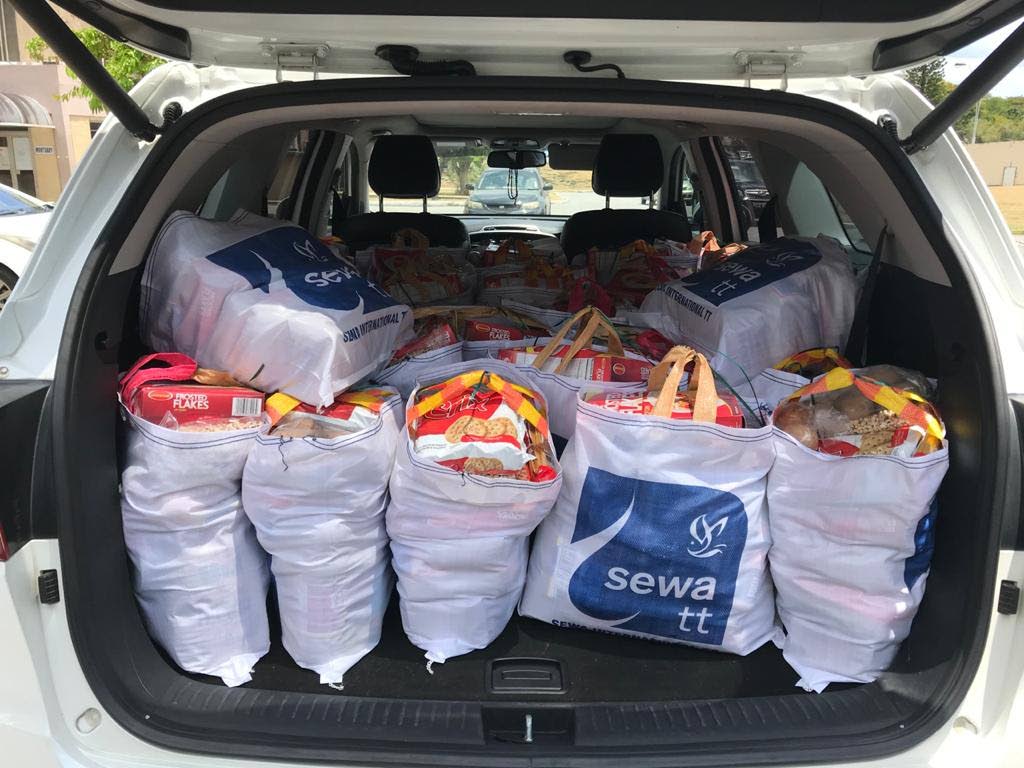
Sewa TT, established in 2013, has become a charitable and disaster response tour-de-force in recent times through innovative approaches to fund-raising and proactive charitable drives. Reevan Teelucksingh, chairman, saw the challenge for the opportunities it presented as well.
“For the first time ever, everyone was at home. So, we used the opportunity to activate on those volunteers who have always wanted to participate but were too busy with work demands. We don’t have paid staff so this allowed us to bring more volunteers in,” he said.
The organisation saw a ten-fold increase in the demand for clothing, food and more and they also noted that they were now assisting people who were caregivers.
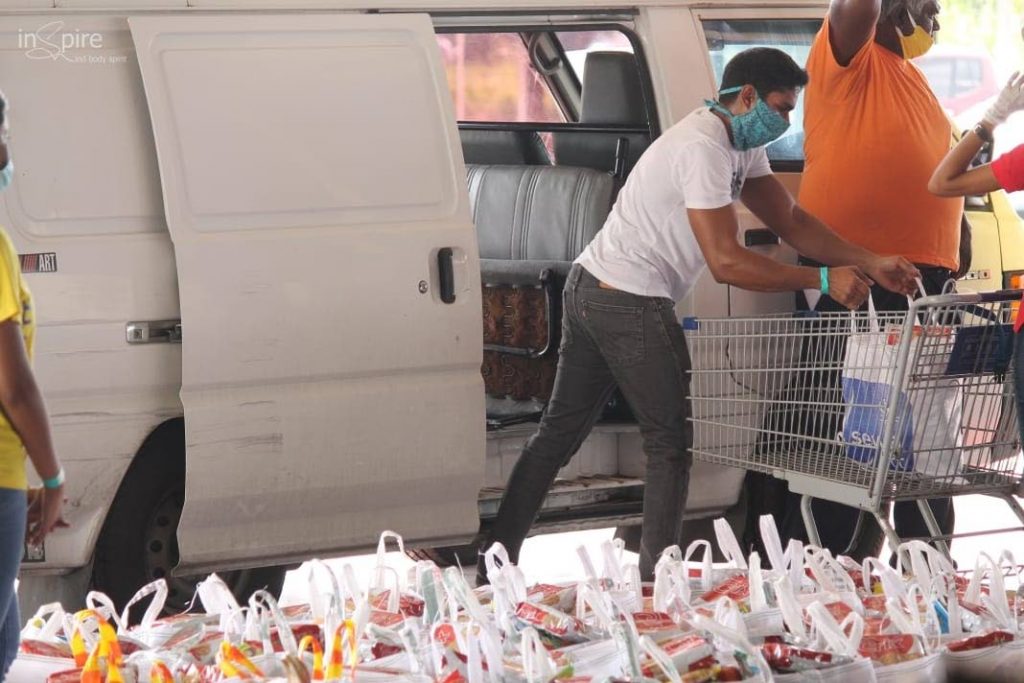
“Many of the funds that we raise come in smaller amounts from the lower middle and lower-income brackets but now those families that were earning say, $1,500 a week were now at home and in turn needed our services,” he explained. With good planning however, Sewa TT was prepared. “We generally do our fundraising at key times of the year so we were ready financially,” he said.
Part of their fundraising is the purchase of virtual Sewa TT packs at supermarkets around the country which in turn were used to purchase goods from those supermarkets and directly from suppliers. So far, they have distributed over $600,000 in foodstuff and were able to activate their mobile medical clinics and blood drives. They also have donated over 25,000 pieces of clothing and 5,000 books which they aim to repeat later this year.
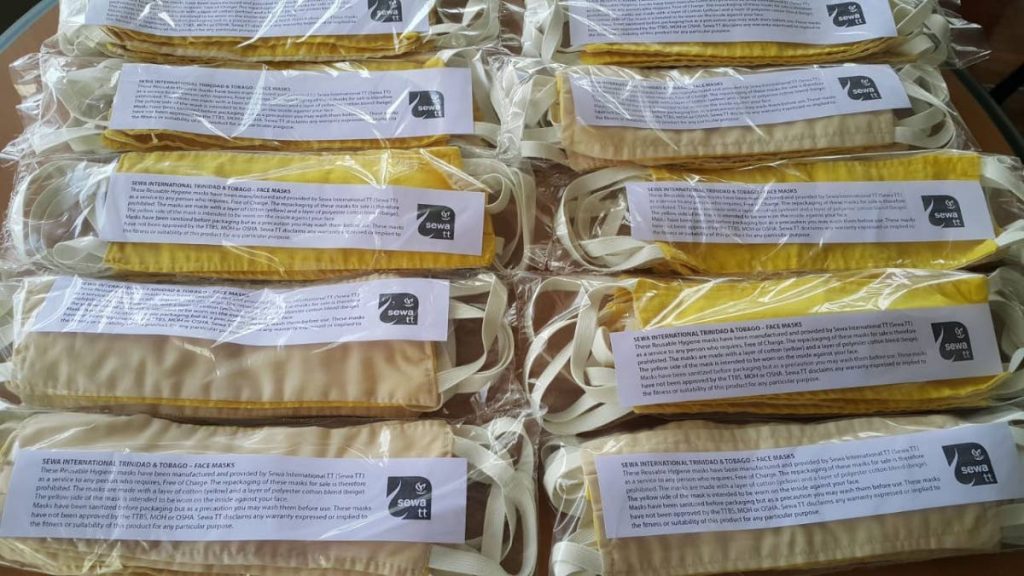
While having to work around Public Health Ordinance restrictions and reduced work hours, the organistion was able to look at the trends in other countries to see what to expect and pre-empt it.
“We sourced cloth and created packs for seamstresses around the country to collect with templates and instructions on how to create face masks – and we did this in that phase where the official health recommendation was to not wear masks. But we saw what other countries were doing and what the global Sewa community were doing too. We had over 100 volunteer seamstresses create over 20,000 cloth face masks which we collected, sanitised and distributed to the neediest who cannot afford to spend the $20 to purchase these too,” Teelucksingh added. The organisation offered meals to frontline medical workers and those in contact-tracing command centres for three months at the height of the initial covid19 wave of infections, free online yoga classes (for mental and physical health) and held numerous sessions to help people complete their forms for government assistance.
Donna Ali, immediate past president and current treasurer of the National Muslim Women’s Association (NMWA), said there has been at least a doubling of demand for their relief efforts. The Interclub of T&T, of which she is also a member, had just emerged from a fundraising period so they have been able to effectively manage relief efforts well, so far.
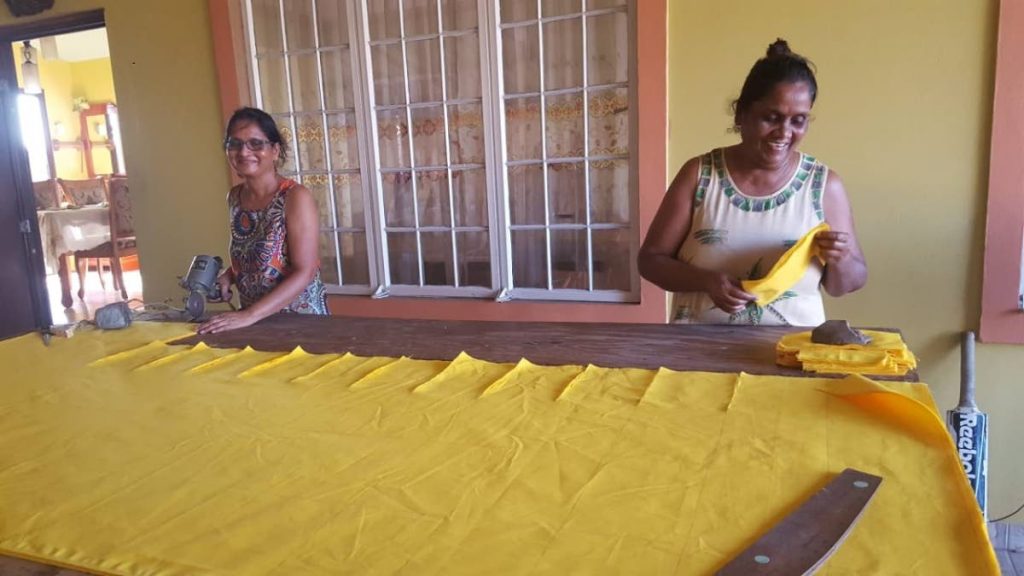
create face masks.
Photos courtesy SewaTT -
“We have adapted by looking at the way in which we assist. All of our assistance is done only after we have done an effective investigation by way of home visits etc. And we have identified some single parent homes in which we have donated sewing machines so that persons can earn an income sewing masks. We at NMWA have also donated countless masks – in the thousands – outside of other relief efforts and work,” she said. “This pandemic has shown up things that we know are there – but choose not to recognise – that there is domestic violence; that there is massive poverty in our country. What we should be focused on now is gathering data that we can pass to the authorities so that our institutions can get to dealing with the issues and not simply leave the work just to the NGOs,” she said
As TT reopens, the numbers of people in need are likely to rise. A slowed economy means that there must be a sustained response by CSOs. Unlike natural disasters which often sees a short recovery curve and a flood of contributions and donations, the pandemic means that almost every single family is affected. And, more than ever, support for the less fortunate can make the difference in how fast the country recovers and remains minimally affected by covid19.
As Teelucksingh noted, “While the less fortunate can seem far removed from us in the event of a disaster, with a pandemic it means that if we leave these at-risk communities without proper food or protection, it’s these same persons who often work in our homes as hired help – so it’s important that we be proactive and continue a sustained response to those in need.”
As an active hurricane season begins, he had a simple idea for communities. “Create a readiness system in your community with something as simple as keeping bread and cheese on hand. In the event of a disaster, 50 homes can quickly mobilise to supply 1,000 cheese paste sandwiches,” he said.
The CSOs show that the smallest contribution can make a significant difference and the input of every citizen is more critical than ever to TT's recovery and long-term survival.


Comments
"Charities in a time of covid19"